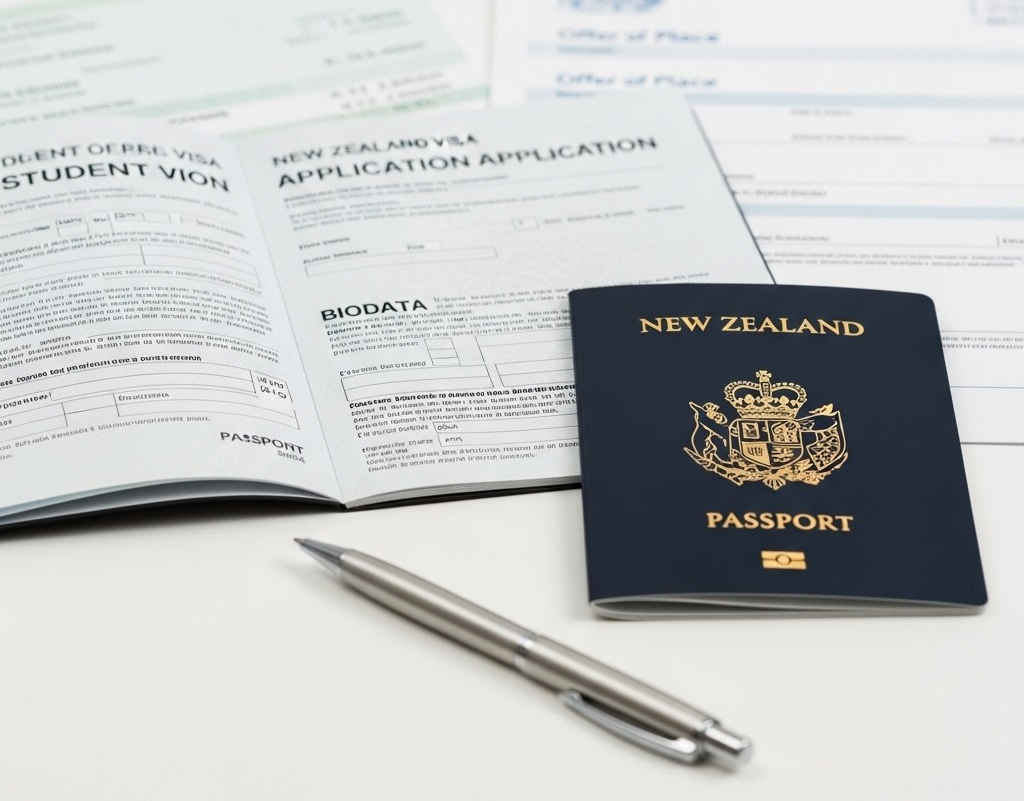Planning to study in the stunning landscapes of Aotearoa New Zealand? Understanding the New Zealand study visa changes for 2025 is your first step toward turning that dream into a reality. The landscape for international students has shifted, and while change can feel daunting, it’s designed to ensure you have a successful and high-quality educational experience. This guide is here to walk you through everything you need to know, breaking down the requirements into clear, manageable steps and offering the encouragement you need to move forward with confidence.

New Zealand study visa changes for 2025
| Key Area of Change | The New Requirement | Why It Matters |
| English Language | Increased score requirements for specific pathways. | Ensures you can fully participate and succeed in your chosen course from day one. |
| Financial Requirement | The minimum funds required to cover living costs have been updated. | Proves you can support yourself financially without needing to work excessive hours. |
| Post-Study Work Rights | Rights are now directly tied to the level and length of your qualification. | Aligns work opportunities with the skills gained, focusing on higher-level qualifications. |
What Exactly Are the New Zealand Student Visa Changes for 2025?
Over the past couple of years, Immigration New Zealand (INZ) has fine-tuned its policies to strengthen the integrity of its international education system. The goal is simple: to attract genuine students to high-quality courses and provide a clear path from study to skilled work for those who qualify. International student visa applications moving to enhanced Immigration Online.
In my experience advising students, the most successful applicants are those who understand not just what the rules are, but why they exist. These changes are about setting you up for success. Let’s dive into the details. Upcoming changes to student visa work rights.

1. Elevated English Language Requirements
Being proficient in English is fundamental to your academic success and integration into Kiwi life. To ensure students are well-prepared, INZ has specified English language requirements more clearly.
For most degree-level courses (Bachelor’s, Master’s, PhD), the requirements often set by the institutions themselves remain high. However, for diploma and other sub-degree level programmes, the government has standardized the minimum English test scores.
What you need to do:
- Check Your Course: The first step is to check the specific English language requirements for your chosen institution and course. This is non-negotiable.
- Aim Higher: Don’t just aim for the minimum score. A higher score on tests like IELTS or TOEFL not only strengthens your visa application but also makes your academic life much easier.
2. Updated Financial ‘Funds’ Requirement
To receive a student visa, you must prove you have enough money to support yourself during your stay. This requirement has been updated to reflect current living costs in New Zealand.
As of late 2023, the requirement was raised to NZD $20,000 per year for students, in addition to funds to cover your tuition fees. This figure is reviewed periodically, so it’s crucial to check the latest amount on the official INZ website before you apply.
How to meet the requirement:
- Sufficient Funds: You must show evidence of funds for your first year of study. This can be in the form of bank statements, a sponsorship guarantee from an acceptable sponsor, or proof of a scholarship like the Manaaki New Zealand Scholarship.
- Plan Ahead: Start organizing your financial documents well in advance. Last-minute transfers into your account can raise red flags. INZ wants to see a stable history of funds.
3. Streamlined Post-Study Work Rights
One of the biggest draws for international students in New Zealand has always been the opportunity to work after graduation. The changes to the Post-Study Work Visa NZ have made this pathway clearer and more directly linked to the qualification you earn.
- Bachelor’s Degree & Higher: Graduates of Bachelor’s degrees, Postgraduate Diplomas, Master’s degrees, and PhDs are generally eligible for a Post-Study Work Visa. The length of this visa is typically equal to the duration of your study, up to a maximum of three years.
- Sub-Degree Qualifications: For non-degree Level 4-6 courses and Level 7 diplomas, you are only eligible for a Post-Study Work Visa if your qualification is on a specific list of in-demand roles, such as those on the Green List.
4. The ‘Genuine Student’ Test
While not a new concept, there is a renewed focus on the ‘genuine student’ test. This means you must be able to convince the visa officer that your primary purpose for coming to New Zealand is to study.
How to prove you’re a genuine student:
- Statement of Purpose: Your application must clearly articulate why you have chosen your specific course, institution, and New Zealand.
- Course Relevance: Demonstrate how the course logically progresses from your previous studies or work experience and how it will benefit your future career plans.
- Ties to Home: Providing evidence of strong financial, family, or social ties to your home country can also support your application.
Your Action Plan: How to Prepare for the New Visa Landscape
Feeling a little overwhelmed? Don’t be. With a solid plan, you can navigate these requirements successfully. I’ve seen many applicants thrive by breaking the process down into these three simple steps.

Step 1: Elevate Your English Skills Now
Don’t wait until the last minute to take your English test. Start preparing today.
- Enroll in a prep course.
- Practice with online resources.
- Immerse yourself in English-language media.
Step 2: Organize Your Finances Early
Financial planning should begin at least six months before you plan to apply.
- Create a clear budget for tuition and living costs.
- If you have a sponsor, ensure their documents are in order.
- Keep your financial records clean and easy to understand.
Step 3: Align Your Course Choice with Your Career Goals
Research is your best friend.
- Explore courses that not only interest you but also have strong career prospects.
- Consult the Green List to see which occupations are in high demand.
- Talk to education advisors and alumni to understand the real-world outcomes of your chosen programme.
The New Zealand study visa changes for 2025 are not barriers; they are signposts guiding you toward a more secure and rewarding educational journey. By focusing on genuine academic intent, proving your English proficiency, and ensuring you are financially stable, you are building the foundation for an incredible experience.
Navigating Germany Visa Rejection: Your Updated Appeal Policy Guide (July 2025)
Malta’s New 100-Day National Sports Visa for Foreign Trial Athletes
FAQs
Q1: Will these changes affect my current student visa?
No, these changes generally apply to new applications. If you are already in New Zealand on a valid student visa, the conditions of that visa remain the same. However, if you apply for a new visa (e.g., a post-study visa or another student visa), you will need to meet the rules in place at the time of your new application.
Q2: How much money do I need to show for my New Zealand student visa in 2025?
You need to show proof of funds for your tuition fees plus living expenses. The living expense requirement was updated to NZD $20,000 per year of study.
Q3: What are the new English test score requirements?
The specific score you need depends on the level of study. For example, a Bachelor’s Degree generally requires an academic IELTS score of 6.0 with no band less than 5.5, or an equivalent score in another accepted test. However, these are minimums, and your chosen university may have higher requirements. Always check with your institution first.










